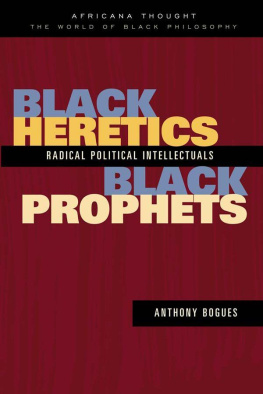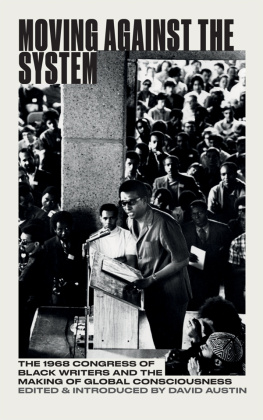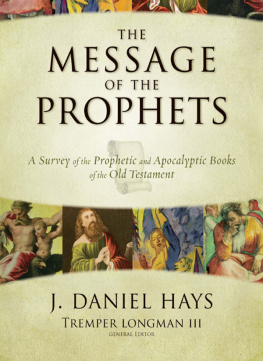The Law and the Prophets
NEW AFRICAN HISTORIES SERIES
Series editors: Jean Allman and Allen Isaacman
David William Cohen and E. S. Atieno Odhiambo, The Risks of Knowledge: Investigations into the Death of the Hon. Minister John Robert Ouko in Kenya, 1990
Belinda Bozzoli, Theatres of Struggle and the End of Apartheid
Gary Kynoch, We Are Fighting the World: A History of Marashea Gangs in South Africa, 19471999
Stephanie Newell, The Forgers Tale: The Search for Odeziaku
Jacob A. Tropp, Natures of Colonial Change: Environmental Relations in the Making of the Transkei
Jan Bender Shetler, Imagining Serengeti: A History of Landscape Memory in Tanzania from Earliest Times to the Present
Cheikh Anta Babou, Fighting the Greater Jihad: Amadu Bamba and the Founding of the Muridiyya of Senegal, 18531913
Marc Epprecht, Heterosexual Africa? The History of an Idea from the Age of Exploration to the Age of AIDS
Marissa J. Moorman, Intonations: A Social History of Music and Nation in Luanda, Angola, from 1945 to Recent Times
Karen E. Flint, Healing Traditions: African Medicine, Cultural Exchange, and Competition in South Africa, 18201948
Derek R. Peterson and Giacomo Macola, editors, Recasting the Past: History Writing and Political Work in Modern Africa
Moses Ochonu, Colonial Meltdown: Northern Nigeria in the Great Depression
Emily Burrill, Richard Roberts, and Elizabeth Thornberry, editors, Domestic Violence and the Law in Colonial and Postcolonial Africa
Daniel R. Magaziner, The Law and the Prophets: Black Consciousness in South Africa, 19681977
The Law and the Prophets
Black Consciousness in
South Africa, 19681977
Daniel R. Magaziner
Ohio University Press, Athens, Ohio 45701
www.ohioswallow.com
2010 by Ohio University Press
All rights reserved
Published in 2010 in South Africa by Jacana Media (Pty) Ltd., 10
Orange Street, Auckland Park 2092, South Africa
To obtain permission to quote, reprint, or otherwise reproduce or distribute material from Ohio University Press publications, please contact our rights and permissions department at (740) 593-1154 or (740) 593-4536 (fax).
Printed in the United States of America
Ohio University Press books are printed on acid-free paper

17 16 15 14 13 12 11 10 5 4 3 2 1
Portions of appeared in the International Journal of African Historical Studies 42, no. 2 (2009). I gratefully acknowledge the editors of MARHO, Duke University Press, and the IJAHS for granting permission to reprint.
Library of Congress Cataloging-in-Publication Data
Magaziner, Daniel R.
The law and the prophets : Black consciousness in South Africa, 19681977 / Daniel R. Magaziner.
p. cm. (New African histories series)
Includes bibliographical references and index.
ISBN 978-0-8214-1917-5 (hc : alk. paper) ISBN 978-0-8214-1918-2 (pb : alk. paper)
1. BlacksRace identitySouth AfricaHistory. 2. Black Consciousness Movement of South AfricaHistory. 3. Black nationalismSouth AfricaHistory. 4. Black nationalismReligious aspectsChristianity. 5. Anti-apartheid movementsSouth AfricaHistory. 6. Anti-apartheid movementsReligious aspectsChristianity. 7. South AfricaPolitics and government19611978. 8. Black theology. I. Title.
DT1758.M34 2010
305.896'06809047dc22
2010019134
They were merely glad to have, at last, divine
corroboration of their experience, to hearand it was
a tremendous thing to hearthat they had been lied
to for all these years and generations, and that their
captivity was ending, for God was black.
James Baldwin, Down at the Cross
Contents
Acknowledgments
This project has its own history, going back to 1998, when I was first struck by Steve Bikos idea that the most potent weapon in the hands of the oppressor is the mind of the oppressed. A clear-eyed, dispassionatecynical, even?academic wrote the pages that follow, but those words still strike me with the intensity that they once struck an idealistic college student. In the decade since then, numerous people have taught me that before understanding what Biko meant, first my own mind needed to be opened, and I want to thank them here.
Perhaps my greatest debt is to the teachers and institutions that made the journey to the PhD (relatively) painless and (frequently) pleasurable. My interest in these issues was initially sparked at Northwestern, under the tutelage of John Rowe, Michael Tetelman, Jonathon Glassman, and Ken Alder. The latter in particular urged me to consider the University of Wisconsin for my graduate studies, and I have made few better decisions in my life. In Madison, Florence Bernault, Neil Kodesh, Tejumola Olaniyan, Michael Schatzberg, Thomas Spear, and Jim Sweet offered instruction, advice, and support. My greatest debt is to Tom and Florence, who opened a space for intellectual exploration and discovery, and to my African history cohort at Wisconsin, who eagerly seized the opportunity. To me, Thursday afternoons will always be about Paul Bjerk, Kelly Duke, Sean Hanretta, Bob Houle, Dior Konate, Tim Lenoch, Gary Marquardt, Toja Okoh, Mark Pettit, Ryan Ronnenberg, Naaborko Sackeyfio, Meredith Terretta, Steve Volz, and a host of others. Being a graduate student at a public university was an often sobering experience, and I am grateful to the administrators and staff of the African Studies Program, Latin American Studies Program, and History Department at Wisconsin for greasing the skids for all those years. Thanks especially to Jim Schlender, the graduate programs MacGyver, able to fashion TA positions from duct tape and, one presumes, threats. Funding for graduate school was provided by the U.S. Department of Education Foreign Language and Area Studies Fellowship program, the U.S. Department of Education Fulbright Hays Doctoral Dissertation Research Abroad program funded the research that makes up the bulk of this book, and the Doris G. Quinn Foundation funded a generous final year write-up grant that made the exit from graduate school easier than it ought to have been.
In South Africa, my greatest thanks go to Mbulelo Mzamane, who, together with Yvonne, opened so many doors for us, including his own. Mbulelo made possible the interviews that are such a critical component of this project. Thanks also to Nkosinathi Biko for sharing both his familys history and the Steve Biko Foundations resources with me. I enjoyed the steady and professional help of archivists across South Africa, notably at the Killie Campbell Archives in Durban, UNISA and the National Archives in Pretoria, and the National Library in Cape Town. By far my greatest debt goes to the staff at the Cullen Librarys Historical Papers collection at the University of the Witwatersrand, Johannesburg. Carol Archibald and Michele Pickover welcomed me nearly every morning at 8 a.m. and never tired (at least outwardly) of my presence. They literally made this project possible. Thanks also to Andries Bezuidenhout, Irma DuPlessis, Clive Glaser, Joey Kok, Brown Maaba, Berno Schneider, and especially Shireen Ally for their support and kindness.







